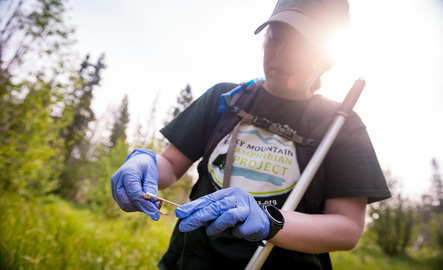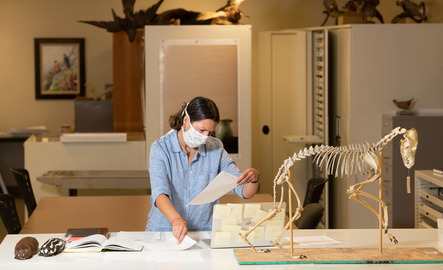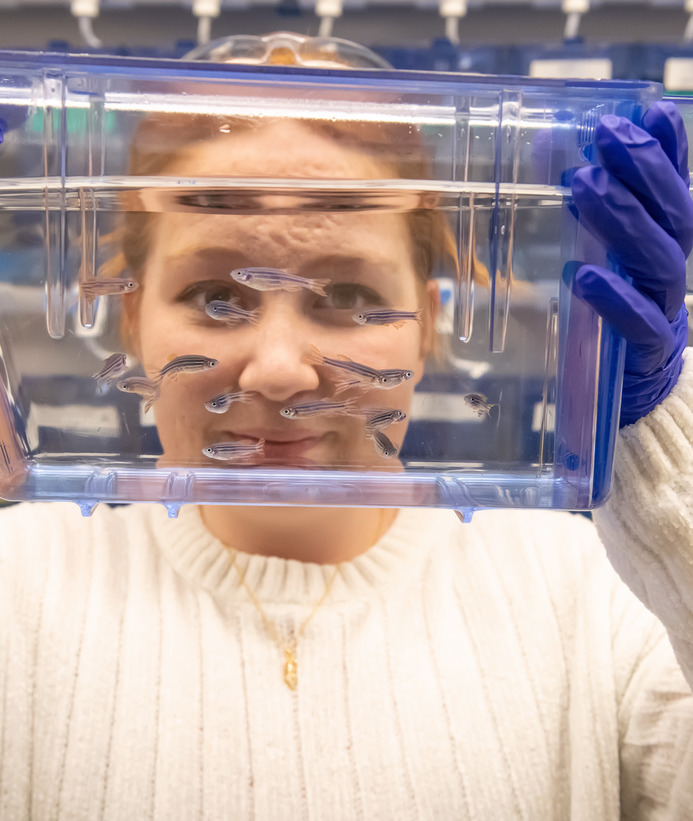What is Biology?
The Bachelor of Science degree in biology is designed to provide a thorough foundation in biology and other supporting areas of science and mathematics, while providing maximum flexibility and student choice. The degree program is administered by the Department of Botany. Upon completion of the core requirements for the major, specific courses to complete the major will vary according to a student's interests and career plans and may be selected from a variety of departments on campus in consultation with a student's faculty advisor.

Interested in ecology and evolution? The ecology and evolution concentration in our
biology undergraduate program is designed to provide students with a comprehensive
understanding of the principles of ecology and evolution. The program focuses on the
mechanisms driving ecological and evolutionary processes, as well as the application
of these principles to real-world problems, such as the conservation of biodiversity
and the management of natural resources. Through coursework and hands-on experience,
students will gain knowledge in topics such as population genetics, community ecology
and ecosystem management. Graduates of this program will be well-equipped to pursue
careers in research, education or management in fields related to ecology and evolution.
View the complete ecology and evolution concentration curriculum.

Biology Minor
If you're interested in learning more about biology, botany, zoology, physiology and other biological sciences, consider adding on a biology minor to your primary degree! Please note that a student majoring in biology may not declare a minor in biology.
Learn MoreWhat can you do with a Biology bachelor's degree?
While challenging, biology degrees lead to diverse career paths and graduate school options. The medical field employs the most biology majors but there are many career opportunities in the field. At UW, you can foster your interests in biology with maximum flexibility to suit your career goals and aspirations.
- Physicians
- Registered Nurses
- Dentists
- Teachers
- Pharmacists
- Medical Scientists
- Veterinarians
- Optometrists
- Physical Therapists
- Wyoming Department of Health
- Idaho National Laboratory
- Puresome
- Casper College
- Omaha's Henry Doorly Zoo and Aquarium
- Pelican Refining Company
Yes, you can absolutely go to medical school with a B.S. in biology. In fact, biology is one of the most common pre-med majors because it typically includes many of the prerequisite courses required for medical school, including general biology, chemistry, physics and organic chemistry. However, med schools don’t require a specific major, so as long as you complete the required coursework and perform well on the MCAT, a biology degree is a solid and well-respected path to medical school.
Pursue Your Passions—in the Lab and Beyond
A well-rounded student experience is ready for you at UW! Just look at Aspen Malkuch, a senior microbiology major. She exemplifies the UW Cowboy spirit through her ambition, curiosity and campus involvement. With plans to become a pathologist, she balances a rigorous academic and research schedule while actively participating in the Cowboy Country Swing Club and embracing student life. Last summer, she took her passion global, conducting cheetah research in Namibia through funding from UW’s Office of Global Engagement. Aspen is a powerful example of how UW biology students combine academic excellence with hands-on experience and a strong sense of community.
UW biology alumni have gone to graduate schools across the country, from the University of Alaska Fairbanks to the University of Iowa, and everywhere in between.


